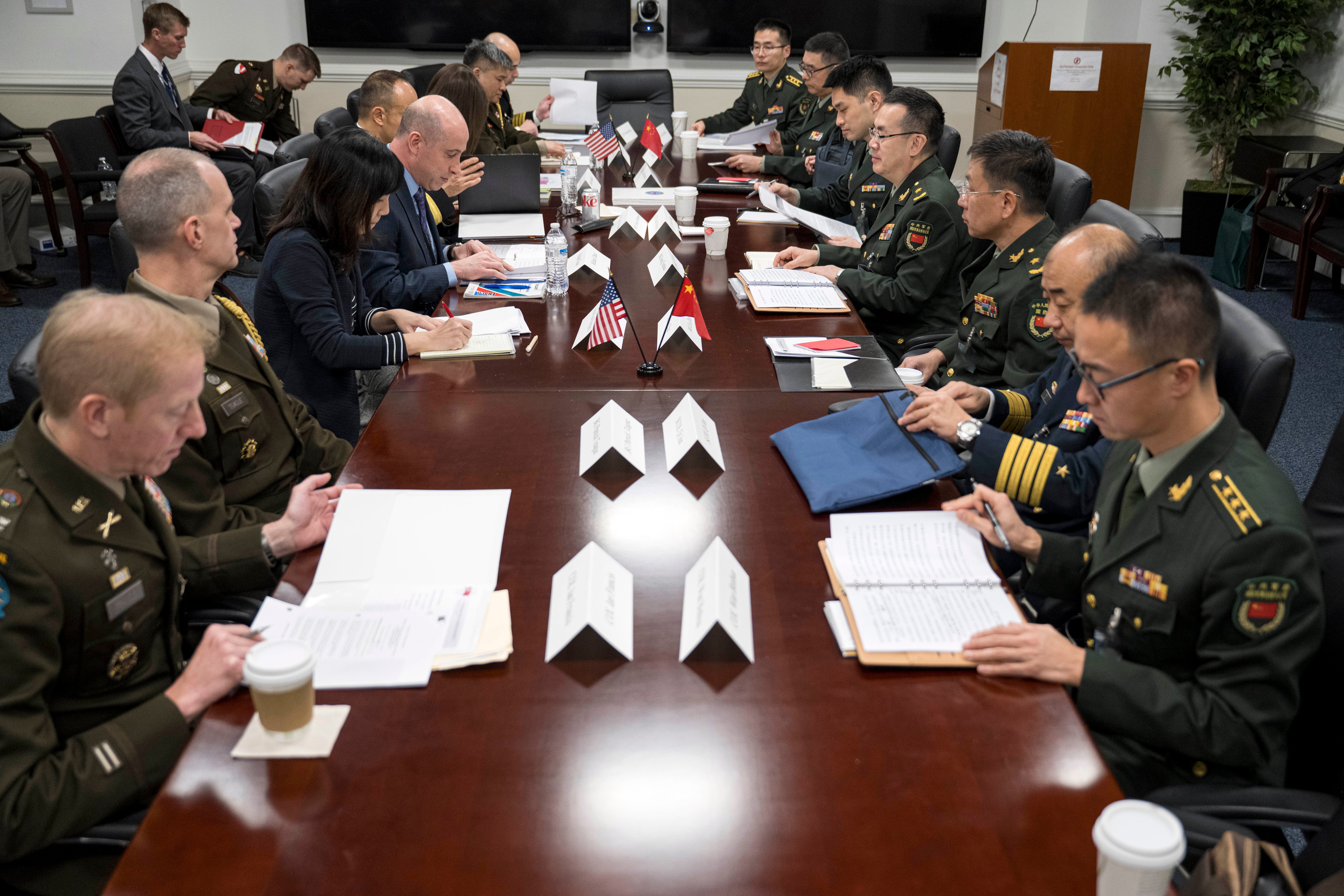US and Chinese military officers resume talks as agreed by Biden and Xi
U.S. and Chinese military officers have resumed talks that were frozen after former House Speaker Nancy Pelosi visited Taiwan in 2022

Your support helps us to tell the story
From reproductive rights to climate change to Big Tech, The Independent is on the ground when the story is developing. Whether it's investigating the financials of Elon Musk's pro-Trump PAC or producing our latest documentary, 'The A Word', which shines a light on the American women fighting for reproductive rights, we know how important it is to parse out the facts from the messaging.
At such a critical moment in US history, we need reporters on the ground. Your donation allows us to keep sending journalists to speak to both sides of the story.
The Independent is trusted by Americans across the entire political spectrum. And unlike many other quality news outlets, we choose not to lock Americans out of our reporting and analysis with paywalls. We believe quality journalism should be available to everyone, paid for by those who can afford it.
Your support makes all the difference.U.S. and Chinese military officers have resumed talks that were frozen after former House Speaker Nancy Pelosi visited Taiwan in the summer of 2022, a development U.S. officials have said is key to keeping the growing competition between the two great powers from turning into direct conflict.
During the deputy-level talks at the Pentagon, the two parties discussed setting future meetings between their military officers, including potentially scheduling a future meeting between Defense Secretary Lloyd Austin and newly appointed Chinese Defense Minister Dong Jun.
Dong is a former naval commander who was appointed in late December after his predecessor, Li Shangfu, was removed from office.
Li was sanctioned by the U.S. in 2018 for buying Russian weapons. After he was named the defense minister in March 2023, the U.S. did not lift the sanctions. No U.S. defense secretary has visited China since Jim Mattis' in 2018.
The face-to-face meetings follow a call between Gen. CQ Brown Jr., chairman of the Joint Chiefs of Staff, and his counterpart Gen. Liu Zhenli, several weeks ago, which marked the first senior military communications between the U.S. and China since August 2022.
China’s delegation at the meeting was headed by Maj. Gen. Song Yanchao, deputy director of the Central Military Commission for international military cooperation. He met with Michael Chase, the Pentagon’s deputy assistant secretary of defense for China, Taiwan, and Mongolia.
While administrative in nature, the two-day talks do allow both sides to raise policy concerns. In a readout of the meeting, the Pentagon said that Chase talked about operational safety in the Indo-Pacific and the United States' commitment to “our longstanding ‘One China’ policy, which is guided by the Taiwan Relations Act," the Pentagon said in a readout of the meeting.
“The Department will continue to engage in active discussions with PRC counterparts about future engagements between defense and military officials at multiple levels,” the Pentagon said in the readout.
The agreement to resume the military talks was reached between President Joe Biden and Chinese President Xi Jinping during their summit in San Francisco last November.
In a briefing with reporters prior to the meetings, a senior U.S. defense official said while the resumption of the talks is a good sign, “we're clear-eyed” that significant differences remain between the two militaries, including the implications of China's movement toward a reunification with Taiwan, which could commit the U.S. to aid in Taiwan's defense. The official spoke to reporters on the condition of anonymity to provide details ahead of the meeting.
Pelosi's 2022 visit to Taiwan angered China because it claims the island as part of its territory and views visits by foreign government officials as recognition of the island’s sovereignty. She was the highest-ranking American official to visit Taiwan in 25 years.
For the past two years, the Pentagon has faced increased difficulty contacting the Chinese military as the number of intercepts between U.S. and Chinese aircraft and ships sharply rose. According to the Pentagon’s most recent report on China’s military power, Beijing “denied, canceled or ignored” military-to-military communications and meetings with the Pentagon for much of the past two years. The report warned that the lack of such talks “raises the risk of an operational incident or miscalculation spiraling into crisis or conflict.”